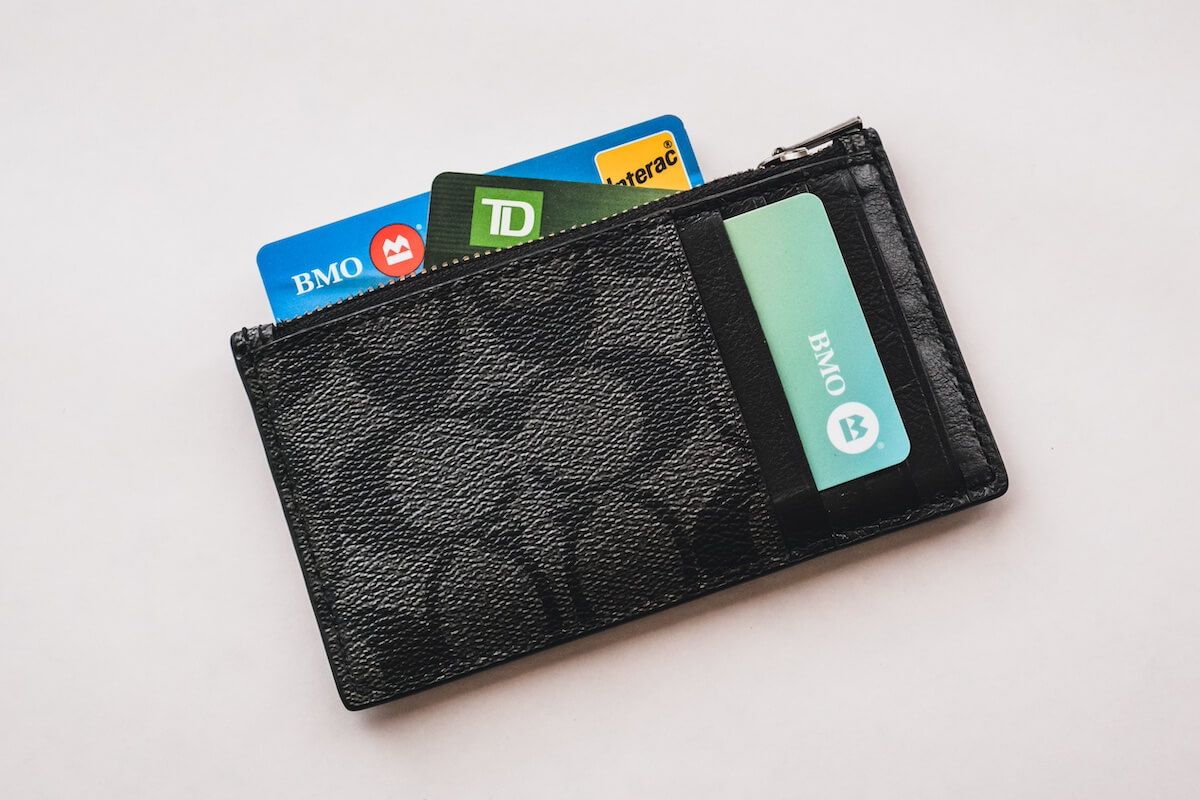Advertiser Disclosure
Last update: January 5, 2024
5 minutes read
How Many Credit Cards Should You Own? How Many is Too Many?
Explore how many credit cards you should own based on your lifestyle and financial habits, plus strategies for responsible card management.

By Brian Flaherty, B.A. Economics
Edited by Rachel Lauren, B.A. in Business and Political Economy
Learn more about our editorial standards


How many credit cards should you have in your wallet? The simple answer is, it depends on your lifestyle, financial habits, and credit management skills. In this discussion, you'll learn about the many factors that should guide how many credit cards you should own. You'll also discover how to strategize your credit card ownership for better financial health.

Key takeaways
- The best number of credit cards to own is specific to your financial habits and lifestyle situation
- You should consider your spending habits, ability to make on-time payments, and your financial status before applying for more credit cards
- Owning multiple credit cards can have its advantages, like higher credit limits, more rewards/points opportunities, and improved credit mix, but it's important to manage them responsibly
How many credit cards should I own?
Choosing the number of credit cards you should own is a tricky balance. Essentially, the best number of credit cards you should own is an amount you can handle responsibly without hurting your financial health.
Is more, better?
More isn't necessarily better when it comes to credit cards. The "right" number depends on personal financial habits and life circumstances. Being responsible with one credit card is better than struggling with many.
Take my case, for example. I have 9 credit cards, and you might think it's too many. But it's perfect for me and my situation. I've built a slow, steady strategy of getting credit cards that serve my specific needs.
- Track spending and stick to a budget
- Don't miss payments
- Avoid carrying a balance month to month - make sure to pay the balance off in full.
These factors keep my financial health in check while still getting the benefits of multiple credit cards.
Do you overspend on a credit card?
This is the first question you should ask yourself. Are you likely to overspend on a credit card? If history suggests that you might, it's best to limit yourself to 1 card. Relying too much on credit cards for daily spending can lead to debt.
- Track your spending
- Create a budget and stick to it
- Treat credit cards as a payment method, not a source of income
Do you miss payments or carry a balance?
Are you likely to miss a payment or carry over a balance to the next month? If the answer is yes, then limiting yourself to 1 credit card could be wise for you.
- Understand that missed payments and high balances hurt your credit score and will cost you extra interest.
- Set reminders to pay on time.
- If you consistently carry a balance, consider refinancing your credit card debt through TuitionHero.
What's my income and what are my typical monthly expenses?
To decide on the best number of credit cards, it's essential to know your income and typical monthly expenses. This helps decide your credit limit and how many cards you can realistically manage.
- Remember that income doesn't directly impact your credit score.
- It could affect the credit limits you're granted, which can influence your credit score.
- If you live paycheck to paycheck, lower income might translate to lower credit limits.
Is one card enough?
One credit card is enough, especially if it makes credit management easier. But for some, having more than one card could be beneficial. If you can manage it, having multiple cards can help your credit score by diversifying your credit mix and showing on-time payment history.
The one caveat is, do not apply for many credit cards at once, as this will cause multiple hard inquiries and hurt your credit score.
- Focus on credit utilization and on-time payment history
- Don't get a new card just because you can. Consider if it actually improves your financial health
Do’s and don'ts of credit card ownership
Successful credit card management involves a set of best practices and habits to avoid. Let's simplify these into a handy table that can serve as a quick reference guide.
Do
Budget before you spend
Pay on time
Have cash ready to pay off purchases
Factor in your income and expenses
Improve your credit utilization ratio
Don't
Overspend because of credit availability
Miss payments
Carry a high balance
Apply for too many cards
Only use one card (unless necessary)
Advantages and disadvantages of owning multiple credit cards
Let's dive into the pros and cons of owning multiple credit cards. It's important to objectively evaluate these before deciding how many cards to own.
Pros of owning multiple credit cards
- It increases your total available credit, which can lower your credit utilization rate
- Multiple cards allow you to take advantage of many rewards and perks
- You’ll have backup payment methods if you lose a card
Cons of owning multiple credit cards
- It can tempt you into overspending
- Mismanaging your cards can lead to missed payments, hurting your credit score
- Each new credit application creates a hard inquiry on your report, which can lower your score temporarily
How TuitionHero fits into your credit card strategy
At TuitionHero, we've got your back with financial services that fit seamlessly into your credit card strategy. We understand that handling multiple credit cards can be hard, and we're here to guide you every step of the way. Our services are designed to help you understand complicated credit card offers and build a strong credit profile.
But it doesn't stop there. We also offer student loan refinancing, scholarships, and FAFSA help to ease the financial burden on students and parents, giving you more control over credit card spending and, in the end, improving your overall financial well-being.
Final thoughts
Deciding how many credit cards to have depends on your money habits, needs, and how well you manage your credit. Having more cards doesn't always mean it's better, so finding the right balance is key. It's not just about having cards; it's about using them wisely and managing your credit responsibly. And remember, we at TuitionHero are here for you, whether it's about credit cards, refinancing student loans, or getting scholarships. We've got your back!
Frequently asked questions (FAQ)
Your credit utilization is the percentage of your total credit limit you have used. Keeping your credit utilization rate below 30% is generally recommended for a healthy credit score. It shows lenders that you're responsible with your credit and can manage multiple credit cards without maxing them out.
Credit scoring models look at both how much of your credit you regularly use and your payment history. Properly managed, multiple credit cards can improve payment history and lower your utilization rate. But remember, each application for a new card results in a hard inquiry, which can temporarily hurt your score.
Budgeting and expense-tracking tools can keep you in line when managing multiple cards. Some of these tools can combine spending from many cards, giving you a complete view of your card usage. Check our credit card offers for cards that have helpful budgeting features built-in.
Yes, you can close a credit card account, but think twice before you do. Closing an account can reduce your total available credit and increase your credit utilization rate, as well as reduce your credit age, hurting your credit score.
Source
Author

Brian Flaherty
Brian is a graduate of the University of Virginia where he earned a B.A. in Economics. After graduation, Brian spent four years working working at a wealth management firm advising high-net-worth investors and institutions. During his time there, he passed the rigorous Series 65 exam and rose to a high-level strategy position.
Editor

Rachel Lauren
Rachel Lauren is the co-founder and COO of Debbie, a tech startup that offers an app to help people pay off their credit card debt for good through rewards and behavioral psychology. She was previously a venture capital investor at BDMI, as well as an equity research analyst at Credit Suisse.
At TuitionHero, we're not just passionate about our work - we take immense pride in it. Our dedicated team of writers diligently follows strict editorial standards, ensuring that every piece of content we publish is accurate, current, and highly valuable. We don't just strive for quality; we aim for excellence.
Related posts
While you're at it, here are some other college finance-related blog posts you might be interested in.
Shop and compare student financing options - 100% free!

Always free, always fast
TuitionHero is 100% free to use. Here, you can instantly view and compare multiple top lenders side-by-side.

Won’t affect credit score
Don’t worry – checking your rates with TuitionHero never impacts your credit score!

Safe and secure
We take your information's security seriously. We apply industry best practices to ensure your data is safe.
Finished scrolling? Start saving & find your private student loan rate today





